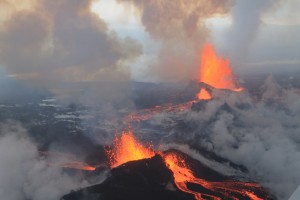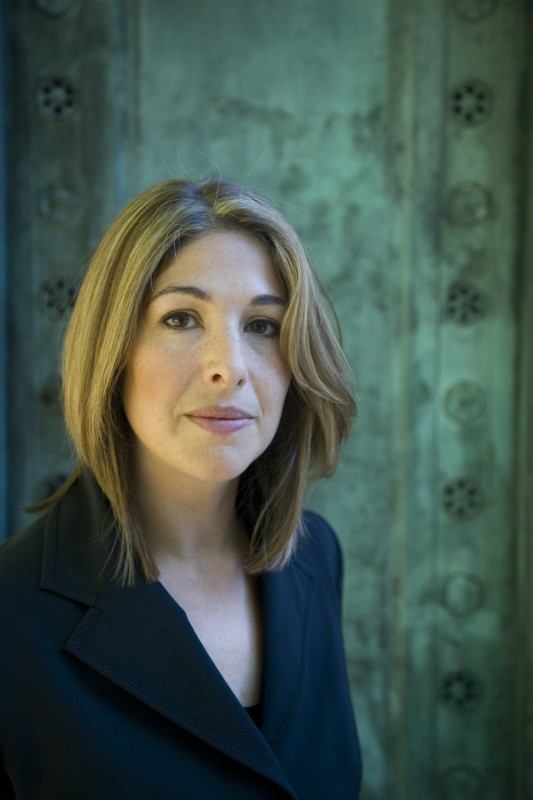
The Musical Travails of Duddy Kravitz: Mordecai Richler, by Brian Brennan (paywall)
In 1974, Mordecai Richler’s great comic novel The Apprenticeship of Duddy Kravitz, about a young Jewish hustler from Montreal who connives, cheats and pushes his way to the top, had been turned into a movie that was a hit in Canada and the United States. And 10 years after that, it was being turned into a stage musical that the backers hoped would be a hit on Broadway. Montreal impresario Sam Gesser had so much faith in the musical, titled simply Duddy, that he was putting up $500,000 of his own money to finance the $1.4 million production. With a libretto adapted by Richler from his novel, and songs by Jerry Leiber and Mike Stoller of 1950s’ rock ’n’ roll fame (Hound Dog, Kansas City, Jailhouse Rock), how could it miss?
“Volcano Season” — is it real? By Robin Wylie
The Earth seems to have been smoking a lot recently. Volcanoes are currently erupting in Iceland, Hawaii, Indonesia and Mexico. Others, in the Philippines and Papua New Guinea, erupted recently but seem to have calmed down. Many of these have threatened homes and forced evacuations. But among their less-endangered spectators, these eruptions may have raised a question: Is there such a thing as a season for volcanic eruptions? Surprisingly, this may be a possibility.
Beijing will outwait Hong Kong’s Protesters, by Jonathan Manthorpe (paywall)
Tens of thousands of Hongkongers took advantage of today’s Chinese national holiday to join students who have clogged the city’s streets for four days demanding Beijing deliver on its promise to give the territory democratic autonomy. But the numbers do not look large enough to prompt Beijing to rethink its decision to keep control of the process by which the head of Hong Kong’s government, the Chief Executive, is chosen. The likelihood now is that the authorities will stand back, watch the protests run out of steam and wither of their own accord.

Review: Naomi Klein‘s This Changes Everything. By Mike Berners-Lee
Naomi Klein’s third attack on capitalism, This Changes Everything, has put the urgency of climate change front and centre. As ever for Klein, unrestrained capitalism is the root problem and has to be dealt with, however difficult that might be – and however much money and power is propping it up. Our response so far has been hopeless, but she is able to point to recent signs that we might yet achieve the radical change we need: push hard now is the message.
Hong Kong’s storms threaten China’s Economy. By Damian Tobin
The pro-democracy protesters in the streets of Hong Kong, once again confront Beijing with the age-old conundrum of how to balance authoritarian control and the demands of a complex modern society. For Beijing, this conundrum is particularly acute as the Communist Party has long lacked the ability to mobilise popular opinion after the discrediting of the mass, populist campaigns of the Maoist era. For Hong Kong, the conundrum offers another insight into the failure of its legislative council to adequately respond to pressing social issues and emerging threats to Hong Kong’s role as a gateway to China.
Swapping privacy for (real) cookies. By Lois Beckett
In a highly unscientific but delicious experiment, 380 New Yorkers gave up sensitive personal information — from fingerprints to partial Social Security numbers — for a cookie. “It is crazy what people were willing to give me,” said artist Risa Puno, who conducted the experiment, which she called “Please Enable Cookies,” at a Brooklyn arts festival. The cookies — actual cookies — came in flavors such as “Chocolate Chili Fleur de Sel” and “Pink Pistachio Peppercorn.” To get a cookie, people had to turn over personal data that could include their address, driver’s license number, phone number and mother’s maiden name.

On the blog:
Finding: Kenojuak Ashevak, by Deborah Jones
Occasionally the Internet, sometimes as as wonderful as it is weird, stops you in your tracks. Google’s Doodle for October 3 transported me back to my teens in the Northwest Territories, where Dorset Prints like Kenojuak Ashevak’s Enchanted Owl were glued onto people’s beer fridges, shed doors and even, rarely, placed with respect on walls in picture frames.
If you missed these:
Kool-Aid Economics, by Chris Wood (paywall)
Canadians have been aware for some time that their Prime Minister subscribes to an arcane fundamentalist strain of Christianity. Being the polite and generally go-along types we are, we have quite properly left his faith between the man and his God. However, it is now evident that Canada’s P.M. is a credulous disciple of another not-so-fringe and much more dangerous faith, about which we have every right to be deeply concerned. That cultic faith is Old Testament economics.
Islamic State threat a media creation, by Jim McNiven (paywall)
The popular media, always looking for the next big thing, has fastened upon the swift victories and social media brutalities of the group calling itself Islamic State. The various media have portrayed the organization as a worldwide threat and a number of governments have organized themselves to deal with it, led by the United States. You have to read between the lines on this one. First, this terrible threatening force is actually weaker than the Taliban force that was over-running Afghanistan in 2002.
U.S. Financial Reform: Secret Recordings and a Culture Clash. By Jake Bernstein
One day Carmen Segarra purchased a tiny recorder at the Spy Store and began capturing what took place at Goldman Sachs. In the tale of what happened next lie revelations about the challenges of reforming the American financial system, in the wake of the 2008 crisis that crippled global finances and continues to reverberate through the world economy.
The Drowning of the ‘Amazon of North America.’ By Bob Marshall, The Lens, and Brian Jacobs and Al Shaw, ProPublica
Scientists say one of the greatest environmental and economic disasters in the history of the United States — the rapid land loss occurring in the Mississippi Delta — is rushing toward a catastrophic conclusion. Southeast Louisiana is one of America’s — and the world’s — economic linchpins. It’s home to half of the oil refineries in the United States, a matrix of pipelines that serve 90 percent of the nation’s offshore energy production and 30 percent of its total oil and gas supply, a port vital to 31 states, and 2 million people. And, at a rate of a football field every hour, Southeast Louisiana is drowning.
Biodefence Drives Ebola Drug Development. By Christopher Degeling
Ebola virus disease typically only occurs in rural and remote areas among resource-poor populations. Until the large, recent outbreak in West Africa, cases of the illness were a rarity. So the fact that we even have experimental drugs for the disease tells a story about how responses to global health crises are shaped by the social and political interests of the developed world.
America’s Dark Money: Who Controls the Kochs’ Political Network? by Kim Barker and Theodoric Meyer, ProPublica(Public access)
Libertarian American billionaire brothers Charles and David Koch were among the first to grasp the political potential of social welfare groups and trade associations — nonprofits that can spend money to influence elections but under United States regulations don’t have to name their donors. The Kochs and their allies have built up a complex network of such organizations, which spent more than $383 million in the run-up to the U.S. 2012 election alone. Documents released in recent months show the Kochs have added wrinkles to their network that even experts well versed in tax law and campaign finance say they’ve never seen before — wrinkles that could make it harder to discern who controls each nonprofit in the web and how it disperses its money.
Have a great weekend.
— Deborah Jones

